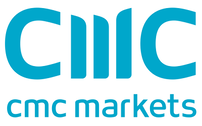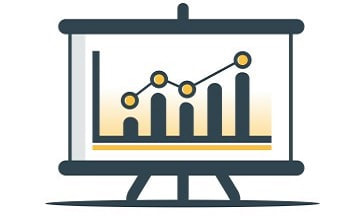CMC Markets Review
Our CMC Markets Review is dedicated to New Zealand-based traders and investors. The purpose of this guide is to help you understand the products and services provided by CMC Markets to New Zealanders
Updated 4 April 2021
Most online trading and investment reviews you’ll find on the internet usually look at things from an international perspective and therefore miss many finer details which truly matter. This review of CMC Markets explores what the broker has to offer New Zealander traders.
CMC Markets Summary
To help you understand the pros, cons, costs and limitations of CMC Markets, our guide covers:
CFD Trading Risk Warning
There are always risks involved in trading financial markets. However, when trading leveraged derivatives like contracts for difference (CFDs), those risks are significantly amplified. If the concept of trading CFDs is new to you, we recommend reading our guides on:
CMC Markets Summary
- CMC Markets is an international listed CFD and stock trading broker but only offers CFD trading in New Zealand, and has operated a local New Zealand office since 2006.
- The company offers a bespoke proprietary trading platform with premium charting tools, live news from Reuters, market calendar, quantitative analysis.
- The platform offers many high-quality educational content, articles, and analysis to help any trader learn more about the markets.
- CMC Markets allows you to trade CFDs on forex, indices, shares and ETFs, commodities, treasuries and cryptocurrencies.
- The popular MetaTrader 4 platform is also available with CMC Markets, albeit with a reduced number of instruments available and a different pricing model.
- CMC lets you open and keep a demo trading account indefinitely.
- The platform offers B2B service for Institutional clients including liquidity solutions and API pricing
- All client funds are held onshore in New Zealand, and the platform is regulated by the FMA.
- Guaranteed stop losses are available.
To help you understand the pros, cons, costs and limitations of CMC Markets, our guide covers:
- CMC Markets' Trading Platforms
- Costs to Trade with CMC Markets
- Getting Started with CMC Markets
- CMC Markets Frequently Asked Questions
CFD Trading Risk Warning
There are always risks involved in trading financial markets. However, when trading leveraged derivatives like contracts for difference (CFDs), those risks are significantly amplified. If the concept of trading CFDs is new to you, we recommend reading our guides on:
CMC Markets in New Zealand - Financial Regulation and Registrations
CMC Markets is registered and licensed in New Zealand. The New Zealand company was incorporated in 2005 as CMC MARKETS NZ LIMITED with company number 1705324. The company is registered as a Financial Services Provider with FSP no. FSP41187 and licensed as a Derivatives Issuer with the Financial Markets Authority since December 2014.
Know This First - CMC Markets' Corporate Overview
CMC Markets was founded in 1989 as ‘Currency Management Consultants’ by Peter Cruddas, who at the time was a foreign exchange dealer who has worked at various London-based banks and remittance companies. Over the years, CMC Markets grew into one of the largest online trading brokers worldwide. The company developed one of the first electronic trading platforms launched in 1996.
Fast forward a couple of decades, and CMC Markets is listed on the London Stock Exchange under the ticker CMCX with a market of £1.2 bn (NZ$2.3 bn). The company is present and licensed in several major financial hubs, including New Zealand.
The company's founder and CEO Lord Cruddas is an active political figure and philanthropist. Additionally, the company CMC Markets engages in numerous corporate social responsibility activities. In New Zealand, CMC Markets is also a sponsor of Variety - the Children’s Charity and rugby team, The Blues.
Fast forward a couple of decades, and CMC Markets is listed on the London Stock Exchange under the ticker CMCX with a market of £1.2 bn (NZ$2.3 bn). The company is present and licensed in several major financial hubs, including New Zealand.
The company's founder and CEO Lord Cruddas is an active political figure and philanthropist. Additionally, the company CMC Markets engages in numerous corporate social responsibility activities. In New Zealand, CMC Markets is also a sponsor of Variety - the Children’s Charity and rugby team, The Blues.
CMC Markets' Trading Platforms
If you decide to proceed with CMC Markets, you’ll be able to choose from two premium trading platforms. The first is the company’s proprietary platform called Next Generation, packed full of tools and features. The second is MetaTrader 4, a common platform used by most forex and CFD brokers.
Next Generation
The Next Generation platform is an impressive trading platform. What’s quite remarkable is the ability to customise the interface with various modules. Essentially, the application is a workspace to drag, drop and resize multiple elements such as charts, tickers, indicators, news feeds and more.
Depending on your style, you can have as many or as few widgets as needed to comfortably analyse and trade the markets. The application lets you save multiple layouts, meaning you can store different templates depending on the markets you’re trading.
The range of tools to help you trade are impressive, and include:
To access the full range of trading products and added value features, you’ll need to trade with the Next Generation platform, which is available as a web browser, iOS and Android application. The dozens of platform features are well described and illustrated on its website.
Depending on your style, you can have as many or as few widgets as needed to comfortably analyse and trade the markets. The application lets you save multiple layouts, meaning you can store different templates depending on the markets you’re trading.
The range of tools to help you trade are impressive, and include:
- A pattern recognition scanner helps find emerging chart patterns without opening and analysing charts yourself.
- CMC Markets shows client sentiment, indicating how many traders are long vs short in terms of volume and number of clients. There is also an option to filter the information to show their ‘top clients’ sentiment, who are overall profitable traders.
- Quantitative equity research reports from leading financial markets analyst Morningstar are streamed into the platform and a comprehensive news feed from leading news agency Reuters. The platform also offers a feed of insights, Tweets and videos from CMC Markets’ in-house analysts.
- The platform has simplistic and sophisticated order entry and exit methods. If you want to keep it simple, you can use convenient point-and-click and drag-and-drop methods to trade with market orders, take-profit and stop-loss orders. For those with more advanced strategies, you can partially close positions, use boundary orders, trade from the order book, trailing stop-losses and set your preferred stop-out method.
To access the full range of trading products and added value features, you’ll need to trade with the Next Generation platform, which is available as a web browser, iOS and Android application. The dozens of platform features are well described and illustrated on its website.
MetaTrader 4
MetaTrader 4 (MT4) is a highly popular trading platform, despite being almost two decades old. MT4 retains its popularity in the online trading world thanks to its extensibility. Countless traders have built sophisticated technical analysis indicators and automated trading strategies, and in general, know the platform's features like the back of their hand. Many traders choose to stick with MT4 as it gives freedom to switch brokers without having to navigate an entirely new interface or learn a new programming language.
Must-Know Facts and Features:
Must-Know Facts and Features:
- MT4 is mostly the same across brokers. The only noteworthy differences are the range of markets offered and any add-ons provided by the broker.
- On the CMC Markets MT4 platform, you can trade forex, indices, precious metals and energy products.
- A free virtual private server (VPS) is offered to clients trading more than fifteen lots per month. Additional technical analysis tools Autochartist and FX Blue are also available without any conditions.
- A VPS will be appealing to anyone running an automated trading strategy on MT4. Autochartist is a chart pattern scanner. The tool scans various markets to identify and notify you about different pattern formations. FX Blue is a package of trading tools that extend the basic features of MT4.
MetaTrader 4 vs Next Generation
Here is a quick summary highlighting the main differences between the CMC Markets Next Generation platform and the classic MT4 application:
- Traders who have already traded with other brokers tend to favour MT4 as the platform is widely used in the forex industry. Traders experienced in other financial products, familiar with stock trading platforms or entirely new to trading are likely to choose the Next Generation platform.
- The CMC Markets Next Generation platform offers the full scope of trading products the company provides, whereas MT4 offers limited products. For example, there are no stocks available in MT4 whatsoever.
- MT4 allows you to develop trading robots, indicators and tools, whereas the Next Generation Platform does not cater to customisation.
- MT4 offers limited news, insights and analysis, whereas Next Generation offers an abundance of information to guide you through the markets.
CMC Markets trading instruments
CMC Markets offers more than ten thousand trading CFD products, covering forex, indices, shares, ETFs, commodities, treasures and cryptocurrencies.
- Forex: 348 currency pairs, including 35 NZD-crosses and 12 forex indices, including a New Zealand dollar index
- Indices: 116 stock market indices based on cash markets and forward contracts.
- Shares: More than 9,200 from exchanges in 23 countries and 28 thematic share baskets
- ETFs: More than 1,000 exchange-traded funds
- Commodities: More than 120 commodity products consisting of precious metals, energy products and agricultural commodities
- Cryptocurrencies: 14 popular cryptocurrency markets.
- Treasuries: More than 50 of the most stable treasury bills
Costs to Trade with CMC Markets
When you trade or invest, there are various costs involved, and they can add up, ultimately influencing your breakeven points. These days, pricing structures are quite transparent, even if they are somewhat complex. Here is a breakdown of the fees charged by CMC Markets:
1. Spreads
The spread is the difference between the buy and sell prices quoted by a broker. Spread fluctuates according to market conditions. CMC Markets advertises the minimum spreads on its website; however, the live spreads will be shown inside the trading platform. Here are a few examples:
There aren’t any commissions to trade forex pairs, indices, commodities (i.e., precious metals, oil), cryptocurrencies or treasures. However, all of these products incur a spread. Brokers mark-up on the wholesale rates they get from banks, prime brokers and market makers. G5 major currency pairs start from 0.7 pip spread with no commission. Premium clients have access to rebates on spread costs.
2. Commissions
CMC Markets charges a commission on trading stocks but does not apply any spread mark-up. Commissions are charged as a percentage of the value of the order. There is always a minimum fee charged, so you pay a higher amount of either the minimum fee or the percentage. The percentage and minimum fee applied varies according to the exchange where the stock is listed. The minimum fee for trading New Zealand shares is NZ$7, and the commission is 0.10%. Here are a couple of examples:
3. Carrying, holding and borrowing costs
There are three separate charges associated with holding positions overnight. Although the calculation is slightly different, the principle is the same. If you trade derivatives with leverage, there is an underlying physical product that someone has the responsibility of holding. You’re also essentially borrowing money for the broker to gain a larger exposure to the market.
If and how each of these costs are calculated varies depending on the underlying product. All fees will be clearly communicated inside the trading before entering any trades.
4. Inactivity fee
An inactivity fee will be charged if you do not trade on your live account for twelve-months. After twelve months have passed, a monthly charge of either NZ$15 or US$15 depending on your account currency. Therefore, if you’re planning on taking a long-term break from trading, it would be wise to withdraw all funds and possibly close the account.
5. Market data fees
A fee might be applicable to view real-time prices for products listed on certain exchanges. CMC Markets offers free data for non-professional clients to view quotes of products listed in the UK, US, New Zealand and several other countries. A monthly fee of AU$20 is required to view quotes for Australian listed products.
6. Rebates
CMC Markets offers a rebates program to high volume trades. Rebates are not so much a reward or incentive; rather, they are a discount for active traders to benefit from economies of scale. For example, if you trade more than the equivalent of US$25 mln notional volume, you’ll get a rebate of US$5 per million US dollars of notional volume traded. If your monthly trading volume is equivalent to US$27 mln, you will get a rebate of US$10 or the equivalent amount paid into your trading account.
The rebate program is structured, meaning higher rebates are given for larger trading volumes. Rebates vary for each product. You can find more details about CMC Markets rebates on the company’s website.
1. Spreads
The spread is the difference between the buy and sell prices quoted by a broker. Spread fluctuates according to market conditions. CMC Markets advertises the minimum spreads on its website; however, the live spreads will be shown inside the trading platform. Here are a few examples:
- The minimum spread on the Australia 200 index is listed as 1.0 pips during normal trading hours, meaning if you trade one lot (1 index) of AUS200 at lunchtime, the spread is equal to AU$10. The minimum spread during out of hours trading is 4.0 pips, meaning if you later close the position for one lot of AUS200 before heading to bed, the spread will be equal to AU$40.
- The minimum spread on AUD/NZD is listed as 2.7 pips meaning if you trade one lot (100,000) of AUD/NZD, the spread equals NZ$27.
There aren’t any commissions to trade forex pairs, indices, commodities (i.e., precious metals, oil), cryptocurrencies or treasures. However, all of these products incur a spread. Brokers mark-up on the wholesale rates they get from banks, prime brokers and market makers. G5 major currency pairs start from 0.7 pip spread with no commission. Premium clients have access to rebates on spread costs.
2. Commissions
CMC Markets charges a commission on trading stocks but does not apply any spread mark-up. Commissions are charged as a percentage of the value of the order. There is always a minimum fee charged, so you pay a higher amount of either the minimum fee or the percentage. The percentage and minimum fee applied varies according to the exchange where the stock is listed. The minimum fee for trading New Zealand shares is NZ$7, and the commission is 0.10%. Here are a couple of examples:
- Let’s say you want to go long on fifty shares of Westpac Banking Corp. (NZX:WBC). When opening, the price per share is NZ$25.5, meaning the position’s notional value is NZ$1,275. In this case, the 0.10% commission would be NZ$1.23, which is less than the NZ$7 minimum fee. Therefore, NZ$7 is charged.
- Now suppose the price of NZX:WBC ballooned to NZ$255.00 per share. When closing the position, the order’s value will be NZ$12,750. A commission of 0.10% would be NZ$12.75, and that’s what will be charged as it’s higher than the minimum NZ$7.
- Premium clients can receive a commission discount.
3. Carrying, holding and borrowing costs
There are three separate charges associated with holding positions overnight. Although the calculation is slightly different, the principle is the same. If you trade derivatives with leverage, there is an underlying physical product that someone has the responsibility of holding. You’re also essentially borrowing money for the broker to gain a larger exposure to the market.
If and how each of these costs are calculated varies depending on the underlying product. All fees will be clearly communicated inside the trading before entering any trades.
4. Inactivity fee
An inactivity fee will be charged if you do not trade on your live account for twelve-months. After twelve months have passed, a monthly charge of either NZ$15 or US$15 depending on your account currency. Therefore, if you’re planning on taking a long-term break from trading, it would be wise to withdraw all funds and possibly close the account.
5. Market data fees
A fee might be applicable to view real-time prices for products listed on certain exchanges. CMC Markets offers free data for non-professional clients to view quotes of products listed in the UK, US, New Zealand and several other countries. A monthly fee of AU$20 is required to view quotes for Australian listed products.
6. Rebates
CMC Markets offers a rebates program to high volume trades. Rebates are not so much a reward or incentive; rather, they are a discount for active traders to benefit from economies of scale. For example, if you trade more than the equivalent of US$25 mln notional volume, you’ll get a rebate of US$5 per million US dollars of notional volume traded. If your monthly trading volume is equivalent to US$27 mln, you will get a rebate of US$10 or the equivalent amount paid into your trading account.
The rebate program is structured, meaning higher rebates are given for larger trading volumes. Rebates vary for each product. You can find more details about CMC Markets rebates on the company’s website.
Getting Started with CMC Markets
Getting familiar with CMC Markets is the best way to avoid problems, and starting with a demo account means your money is safe. Our view is simple - practice with the tools with a demo account until you are more than confident to progress to real money. MoneyHub has received emails from users who complains about losing $5,000, $10,000 (and more) while using CFD platforms, and these losses were usually incurred in very short periods of time.
1. Opening a Demo Account
Before you decide to trade with CMC Markets or risk any money in the markets, you can open a demo trading account on either MT4 or the Next Generation platform. The demo account can be kept for as long as you need to feel confident and even after you open a live account.
An important thing to note is that trading on stock CFDs is only available for thirty-days, and the platform will not display pricing. Stock exchanges have a monopoly on market data, and according to an agreement CMC Markets probably has with the underlying exchanges, there are presumably costs involved for distributing data.
An important thing to note is that trading on stock CFDs is only available for thirty-days, and the platform will not display pricing. Stock exchanges have a monopoly on market data, and according to an agreement CMC Markets probably has with the underlying exchanges, there are presumably costs involved for distributing data.
2. Opening a Live Account
To open a trading account with CMC Markets, you’ll need to be equipped with some documents. According to international anti-money laundering (AML) standards, financial institutions must perform customer due diligence on their clients.
When opening a real trading account with CMC Markets, you’ll be asked to provide proof of identity and proof of address. A document to identify yourself could be your passport, driving license or national ID. To verify your address, you need to use a document posted to your address; CMC Markets does not accept online bills. The type of document they expect is one issued by a trusted institution, such as a bank, utility company or government office. Mobile phone contacts are not accepted as the product is not supplied to the premises; however, a fixed-line internet or phone connection would be acceptable.
The proof of identity you provide should be valid, and the proof of residence document you submit should not be older than three months.
In rare cases, CMC Markets might ask you to certify a document, and if the document is not issued in English, they might ask for a translation. One of the downsides of online verification is the financial institution you’re opening an account with may struggle to judge the document’s authenticity. The company’s FAQ section explains the process very clearly.
First-time traders often face a shock when opening an online trading account. Investment firms are put under a lot of pressure by regulators, banks and payment processors to prevent financial crimes.
When opening a real trading account with CMC Markets, you’ll be asked to provide proof of identity and proof of address. A document to identify yourself could be your passport, driving license or national ID. To verify your address, you need to use a document posted to your address; CMC Markets does not accept online bills. The type of document they expect is one issued by a trusted institution, such as a bank, utility company or government office. Mobile phone contacts are not accepted as the product is not supplied to the premises; however, a fixed-line internet or phone connection would be acceptable.
The proof of identity you provide should be valid, and the proof of residence document you submit should not be older than three months.
In rare cases, CMC Markets might ask you to certify a document, and if the document is not issued in English, they might ask for a translation. One of the downsides of online verification is the financial institution you’re opening an account with may struggle to judge the document’s authenticity. The company’s FAQ section explains the process very clearly.
First-time traders often face a shock when opening an online trading account. Investment firms are put under a lot of pressure by regulators, banks and payment processors to prevent financial crimes.
3. Funding your Trading Account
- You can fund your CMC Markets trading account using a credit/debit card or bank transfer. For faster and cheaper bank transfers, you can use POLi.
- Using a credit or debit card is the most convenient way to deposit funds to your CMC trading account. Only Visa and Mastercard are accepted, American Express and Diners Club are not.
- The downside of using a card transaction to deposit is a 2.3% fee. The card transaction fee is waived for all first-time deposits. Withdrawals to cards are more complicated. Card withdrawals are processed as refunds, which means if you’re profitable, the profits cannot be withdrawn to your card, only the initial amount deposited or less can be returned to the card.
- Therefore, you’ll need to withdraw any profits to a bank account.
- A bank transfer might be a better solution; however, it can be much slower. To speed things up, you can use POLi to send funds from your bank account, but they will be credited to your trading account much faster. Poli is the most popular method of adding funds.
4. Book a Meeting with CMC Markets
If you have a lot of questions before opening an account with CMC Markets, you can arrange a meeting, call or online conference with their team in Auckland. Speaking with a representative is a great first step to learn more about the products and services and ask specific questions rather than sifting through pages of web content and terms and conditions.
CMC Markets Frequently Asked Questions
How long does it take for a trading account to be approved?
Completing the registration form only takes a couple of minutes as long as you have all of your documents on hand. Once you submit your information, it generally takes several minutes to be verified. If there are any issues with your documents or the information you provide seems unclear, the broker might ask for additional information.
Is CMC Markets a good broker to start trading with?
If trading is brand new to you, we strongly urge you to proceed with caution. At this stage, the question should not be ‘is this broker right for me’ but rather ‘is trading financial markets right for me’. CMC Markets is an excellent place to open a demo account and start your learning journey.
Can I invest in shares with CMC Markets New Zealand?
In New Zealand, CMC Markets only offers contracts-for-difference trading instruments. Although you will see stocks, ETFs and indices listed on the companies website, they are just CFDs. If you want to invest and own shares, CMC Markets is not the platform to do it.
Can I use MT4 to trade with CMC Markets?
Yes. CMC Markets offers MetaTrader 4 alongside its proprietary trading platform called Next Generation. You can request an MT4 account at any time.
What is the maximum leverage CMC Markets offers?
The highest leverage available from CMC is 1:500, which is far higher than most other leading brokers. However, just because high leverage is available doesn’t mean you should use it all. Find the right amount of leverage for your trading strategy.
Can I have a trading account denominated in New Zealand dollars?
Yes. When setting up your trading account, you can choose to create an account denominated in NZD. Other account currencies available are USD and HKD.
Can I trade forex and shares from the same account?
Yes. All CFD instruments are accessible from one trading account. There is no need to open multiple accounts.
How long does a CMC Markets demo account last?
If you’ve opened a demo account with CMC Markets, it will not expire. Even if you’re practising didn’t go according to plan, you’re able to add more virtual funds to the trading account at any time.






